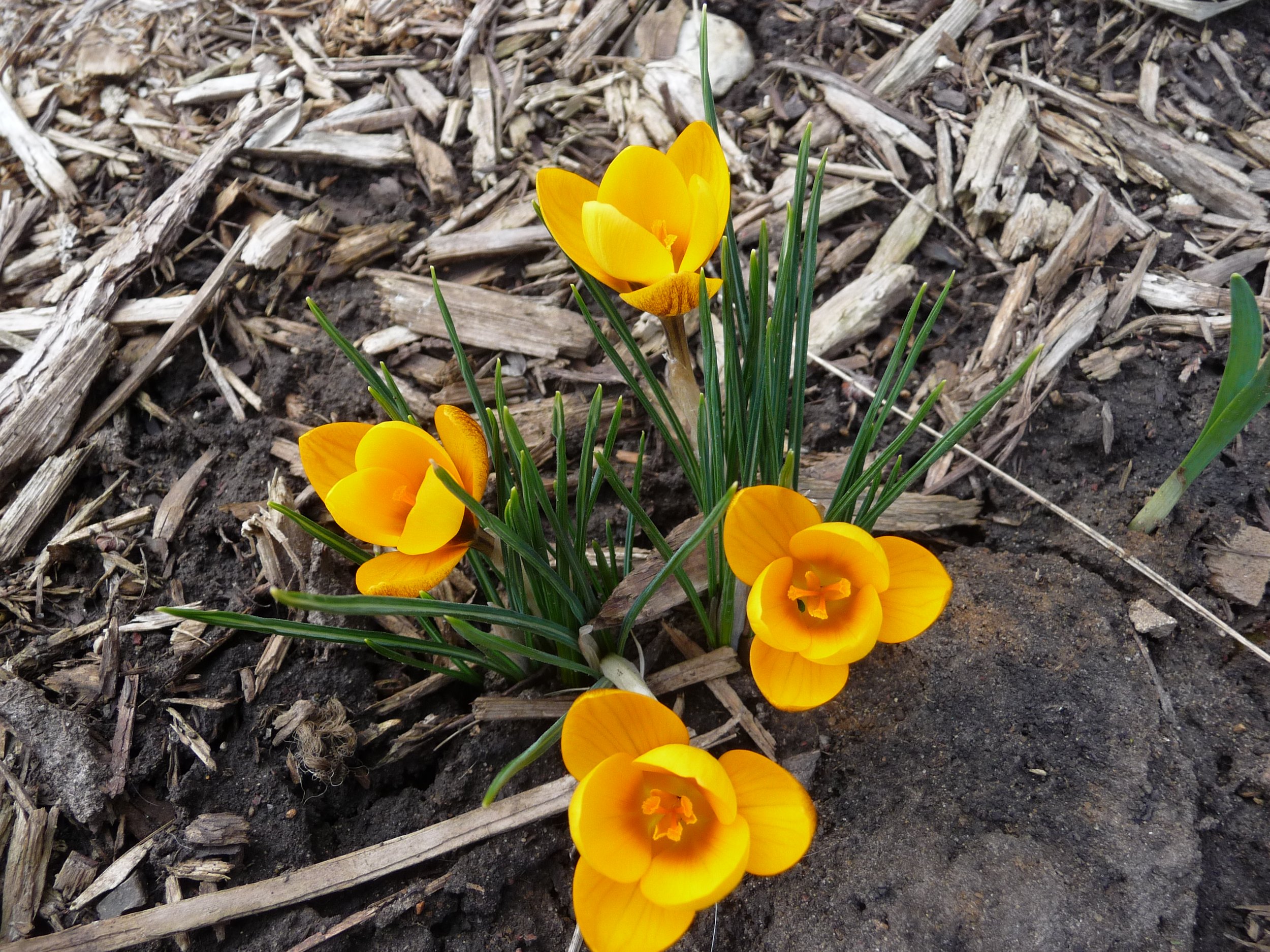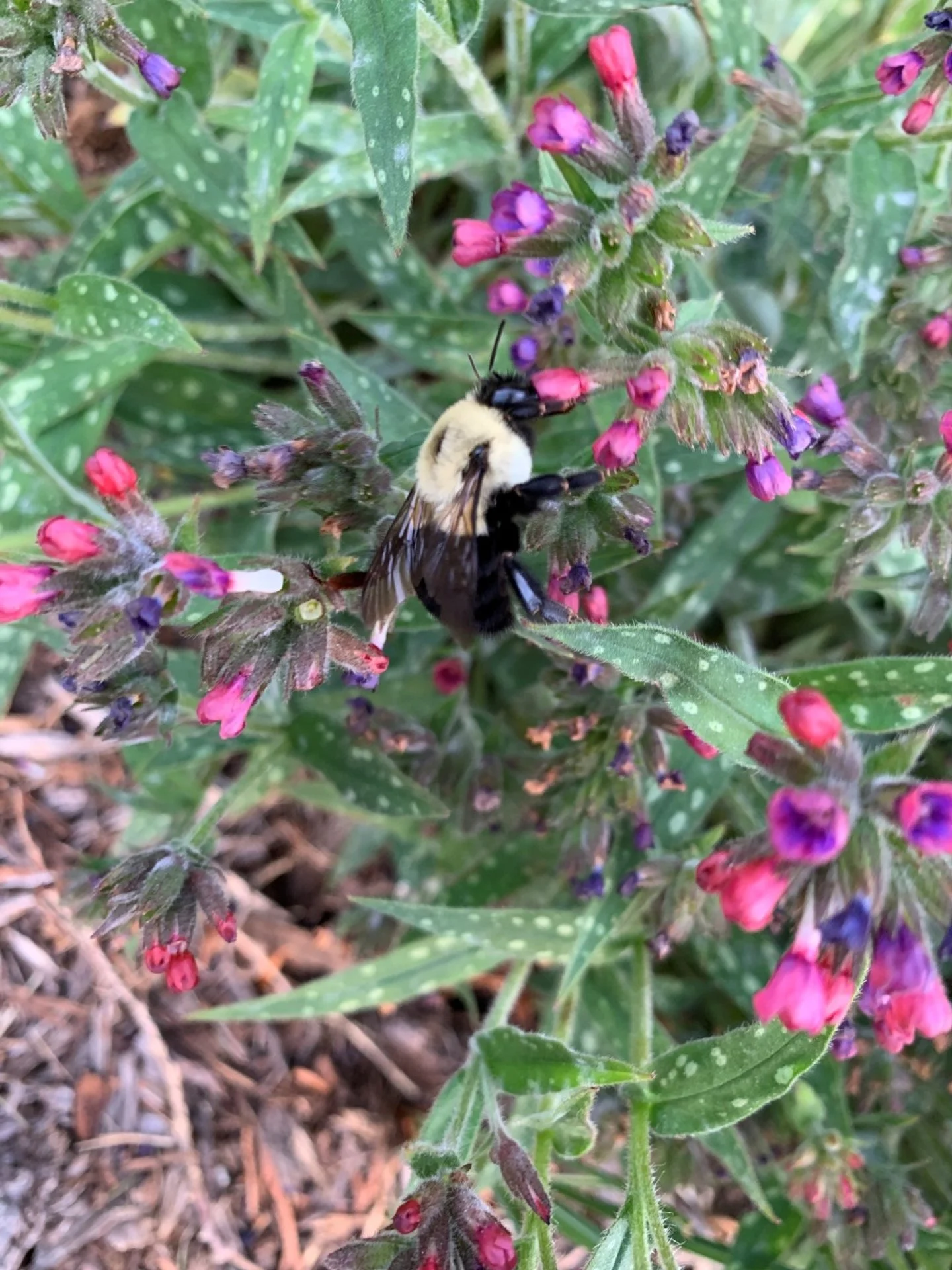
Saving Flower Seeds
One of the final, fun fall tasks is saving seeds. This can range from the complicated when saving seeds from fleshy vegetable that require fermenting to the simple gathering of dried seeds. Flower seeds are one of the easiest to save, and with a few basic pointers, you may never purchase seed to your favorite flowers again.

Minor Bulbs for Major Impact
Spring is far off and gardeners are attempting to finish up fall tasks and prepare for winter. But in order to have an early burst of beauty in the spring, gardeners should plan ahead, planting bulbs in the fall, in order to have something colorful on a dull spring day. Many people utilize major bulbs like tulips, daffodils, and hyacinth, but the minor bulbs are woefully underrepresented in most landscapes.

Gardening Gone Batty
For years ignorance and fear have led humans to kill bats, the only true flying mammals. In addition, loss of habitat, disease, increased pesticide use, and man-made devices, like wind turbines, have contributed to a significant decline in the population of these creatures that are a vital part of a healthy ecosystem.

Cup Plant: a beautiful native plant for the landscape
Cup plant, Silphium perfoliatum, is a native plant that can be seen growing in moist ditches in Dodge County as well as in the educational garden outside the Administration Building in Juneau. If you are looking for a native wildflower that will not only bring beauty to your landscape but also provide food and water to a whole host of insects, birds, and amphibians, look no further than this unique specimen.

Need a Little Extra Thyme?
Fresh herbs are easy to grow and delicious to use. Versatile thyme can be used either fresh or dry, can be grown for edible uses or as a perennial ornamental that will attract pollinators. It is easy to grow, does not require special conditions, and can be easily moved indoors when winter threatens.

Proper Tree Planting
Spring is an ideal time to plant new trees in the landscape. There are some key practices that ensure long term success for your new addition.

Watering Gardens
In Wisconsin, some growing seasons have abundant rainfall and others do not. Seldom do we go through an entire season without needing some supplemental watering. Lack of water for even a short period of time can have a detrimental effect on plants as they rely on the water to draw up nutrients from their roots to the rest of the plant. Under drought stress, plants may produce stunted fruit, produce no fruit at all, or may produce tasteless, woody, or unpalatable fruit. Knowing how much, when, and how to provide water is a key factor in gardening success.

Growing Greens
Spring has arrived and most gardeners are anxious to start growing something. It is too early to plant most vegetables, but some of the earliest that can be planted are the greens. The most common green is lettuce, but arugula, cresses, endive, kale, spinach, chard, and beet greens also fall into the category. The easiest way to get a variety of greens is to plant mesclun.

Classic Cosmos
Why do you grow flowers? To attract pollinators and beneficial insects? For the sheer beauty? For cut flowers? To brighten your landscape with late-season color? To have some flowers for drying? If you answered yes to any of these questions, then you need to add some easy-to-grow annual cosmos to your list of favorite plants.

Native Bees
Bees are important insects for our food sources. Seventy-five percent of our major food crops depend on pollination to mature, and bees are great pollinators. While honey bees are an important source of that pollination, and provide the added benefit of delicious honey, they are not the only bees that we enjoy here in Wisconsin.

Catalog and Seed Selection
Starting with seed catalogs, first determine if you need to order your seeds or if you can simply go to a local store and pick up what you need. If you are just buying a few things, are not particular about the variety, and only want seeds in the spring, ordering is likely not necessary. The Federal Seed Act of 1939 requires accurate labeling, purity standards, and minimum germination standards, so even smaller packets of cheaper seeds will produce similar results to more expensive seed packets in catalogs.